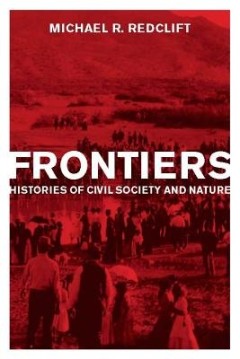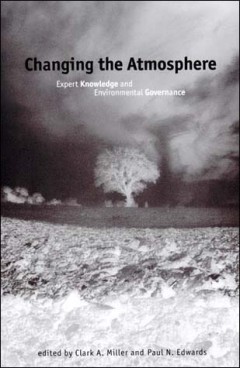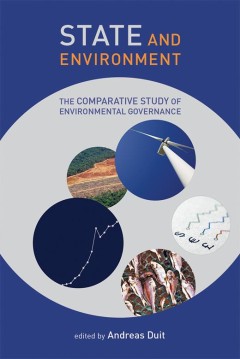Filter by

Frontiers : histories of civil society and nature
In Frontiers, Michael Redclift examines the relationship between nature and society in frontier areas--contested zones in which rival versions of civil society vie with one another, often over the definition and management of nature itself. Drawing on his own fieldwork and extensive archival research, Redclift presents five cases in which civil societies emerged in frontier areas either to mana…
- Edition
- -
- ISBN/ISSN
- 9780262282185
- Collation
- 1 online resource (x, 237 pages) :illustrations, map
- Series Title
- -
- Call Number
- 333 RED f

Changing the Atmosphere: Expert Knowledge and Environmental Governance
In recent years, Earth systems science has advanced rapidly, helping to transform climate change and other planetary risks into major political issues. Changing the Atmosphere strengthens our understanding of this important link between expert knowledge and environmental governance. In so doing, it illustrates how the emerging field of science and technology studies can inform our understanding…
- Edition
- -
- ISBN/ISSN
- 9780262279819
- Collation
- 1 online resource (xii, 385 pages) :illustrations.
- Series Title
- -
- Call Number
- -

State and environment :the comparative study of environmental governance
This volume of comparative studies documents the continuing relevance of the state in environmental politics and policy. The book also demonstrates the analytical power of the comparative approach to the study of environmental politics and policy, offering cross-national comparisons of environmental governance in both developed and developing countries. Some chapters are based on qualitative st…
- Edition
- -
- ISBN/ISSN
- 9780262323871
- Collation
- 1 online resource :illustrations.
- Series Title
- -
- Call Number
- -

A comparative history of social responses to climate change, ozone depletion,…
This long-awaited two-volume book examines how the interplay of ideas and actions applied to environmental problems has laid the foundations for global environmental management. It looks at how ideas, interests, and institutions affect management practice; how management capabilities in other areas affect the ability to deal with specific environmental issues; and how learning affects society's…
- Edition
- -
- ISBN/ISSN
- 9780262284011
- Collation
- 1 online resource (xxv, 376 pages) :illustrations.
- Series Title
- -
- Call Number
- -
 Computer Science, Information & General Works
Computer Science, Information & General Works  Philosophy & Psychology
Philosophy & Psychology  Religion
Religion  Social Sciences
Social Sciences  Language
Language  Pure Science
Pure Science  Applied Sciences
Applied Sciences  Art & Recreation
Art & Recreation  Literature
Literature  History & Geography
History & Geography